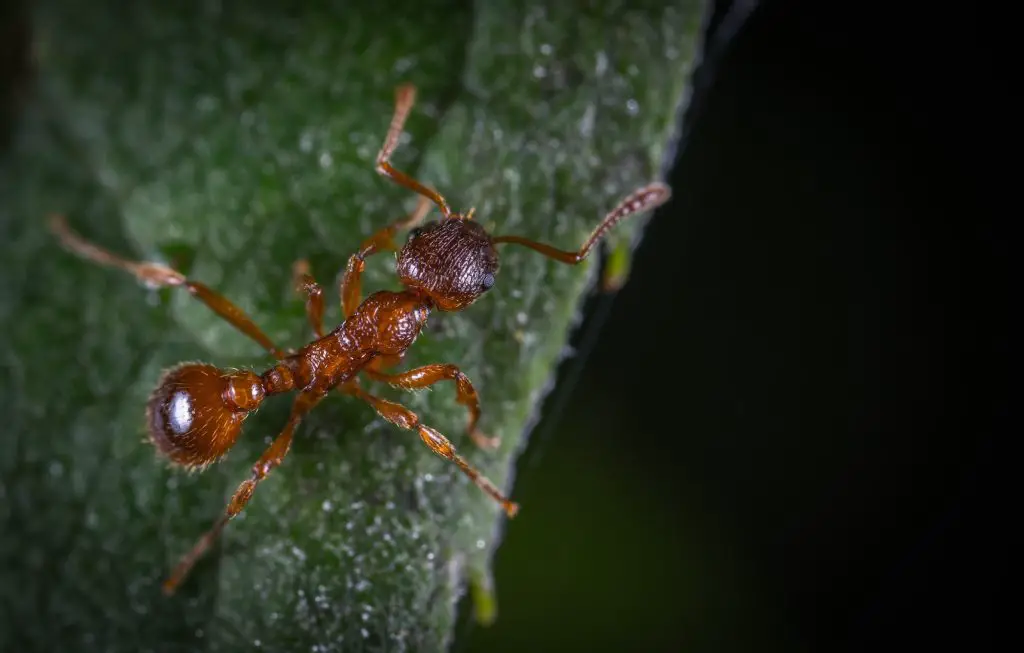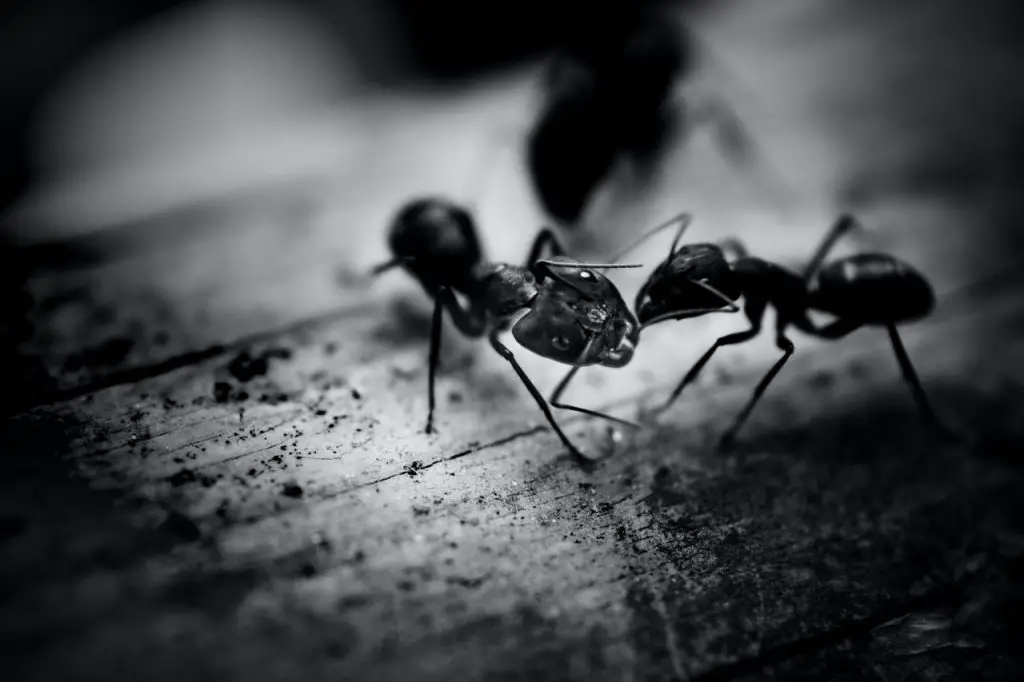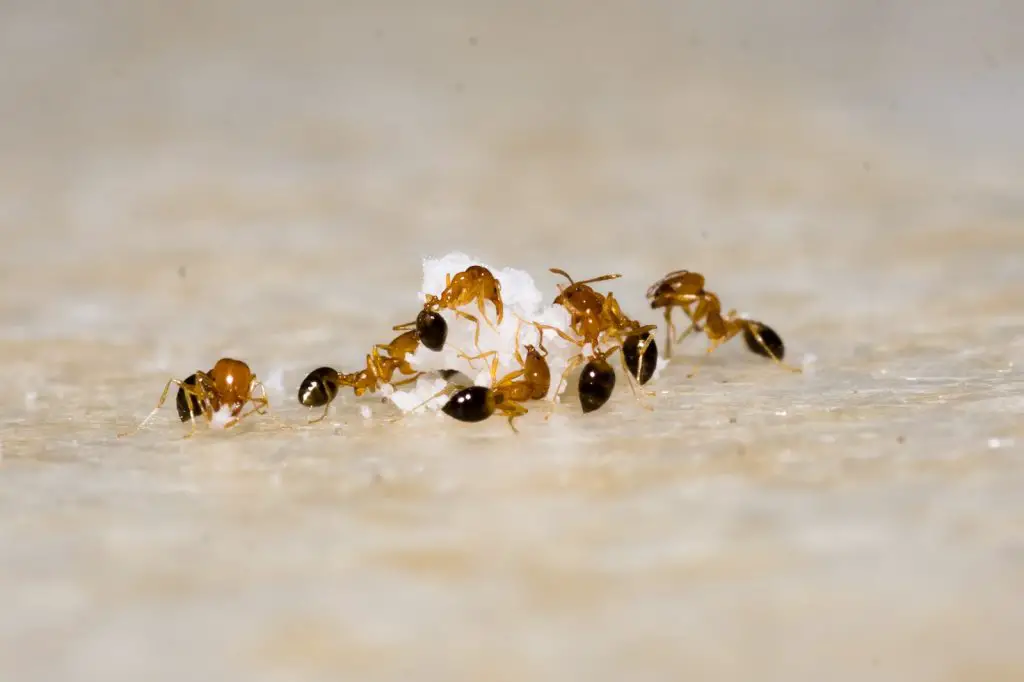Ants have brains, which are relatively small and less complex than humans.
However, they are capable of performing fundamental tasks such as communication, food foraging, predator avoidance, and more.
They have a series of ganglia running down their bodies that help control particular limbs.
These tiny creatures are among the most intelligent insects to grace our planet.
Do ants have brains?
Ants have brains, albeit much smaller than humans, consisting of approximately 250,000 neurons.
Despite lacking a complex brain structure, ant colonies collectively exhibit intelligent behaviours, such as communication, foraging, caring for their young, and avoiding predators.
Ant colonies’ brains are as large as that of most mammals and can navigate long distances.
Despite their simple individual brains, ants have a collective intelligence that allows them to work together as a colony.
Scientists have even suggested that the entire colony may possess a form of intelligence.
While the human brain has over 100 billion brain cells, ants have the largest brain of any insect.
Through their hive mind experience, ants can communicate, forage for food, mate, defend against predators, and navigate over long distances.
In contrast, humans do not have a true hive mind experience.
The brain is a crucial part of an animal’s central nervous system, responsible for controlling behaviours, regulating the body, and interpreting signals from other parts.
Though some animals lack a brain, they have nerve clusters that function similarly.
Insects have nerve clusters and series of ganglia that serve as mini-brains, performing functions similar to those of a brain.
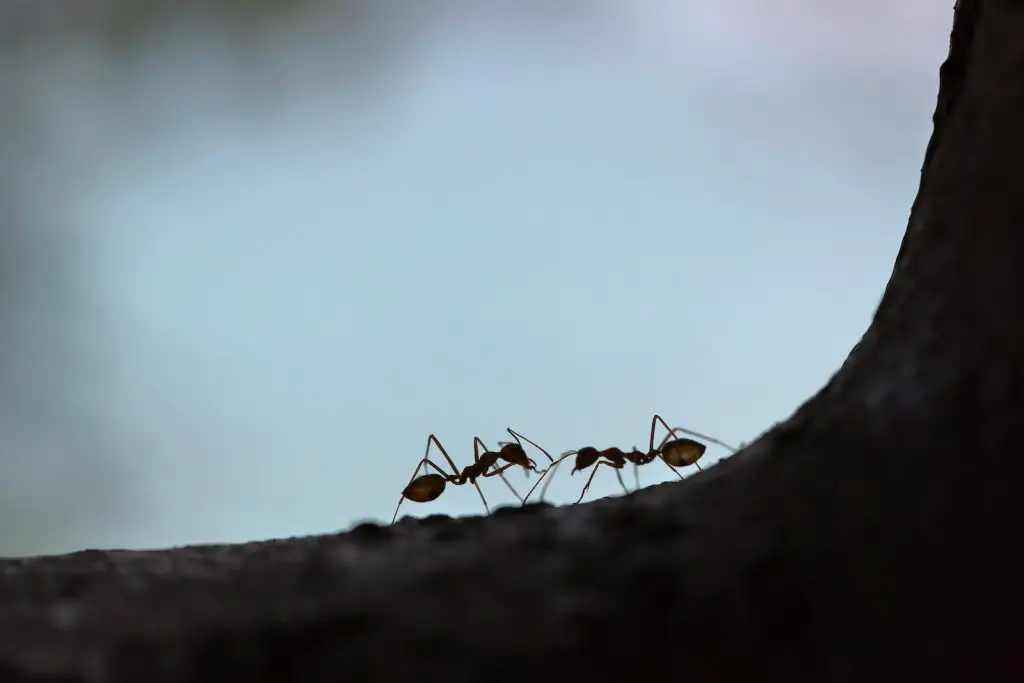
Does an ant have a larger brain compared to its body size?
Due to an ant’s small body size, its brain has to be proportionally smaller to fit.
The brain-to-body ratio of an ant is approximately 1:7. Research conducted at the University of Zurich on brain allometry in ants has shown that the brain-to-body size ratio is smaller in ants than in vertebrates.
Therefore, ants have brains that are relatively smaller compared to their bodies.
Understanding the nervous system in ants
“All arthropods, a diverse group of invertebrate animals that includes insects, crustaceans, and arachnids, share the characteristic of having a segmented nervous system, similar to ants.”
This means that ants have a nervous system divided into a series of segments or ganglia that run down their bodies, controlling particular limbs and functions.
Each ganglion is responsible for a specific body region, and they communicate with each other to ensure coordinated movement and responses.
Despite having a brain and central nervous system with only 250,000 neurons, compared to the human’s over 85 billion neurons.
Ants have a ventral nerve cord with ganglia in each segment, with branching nerves to different parts of the body.
Additionally, the ant has a nerve ring near the pharynx in the oral cavity.
They even possess brains with many of the same features that human brains do, albeit much more primitive.
Are ants intelligent ?
Ants are not individually very intelligent compared to other insects, as a colony. they exhibit an impressively high level of collective intelligence.
This is not to say that individual ants are unintelligent; they can make decisions independently. However, when the colony makes decisions together, they tend to be more successful.
Ants rely on their brains to perform various significant activities such as:
- Vision:The usefulness of vision varies greatly between ant species and individuals. Some ants are completely blind. while most have two compound eyes and up to three small simple eyes known as ocelli.
- Memory: Ants have been shown to have memories, able to remember routes and where to find food
- Movement: As well as processing external information, ant brains also need to process internal messages, so they can move their body.
- Sound: Sound is a less important sense to ants compared to humans. They rarely communicate using sound
- Antenna senses : Antennae are a far more important resource for information for ants than vision.
Antennae have a series of hair-like chemosensory across their surface.
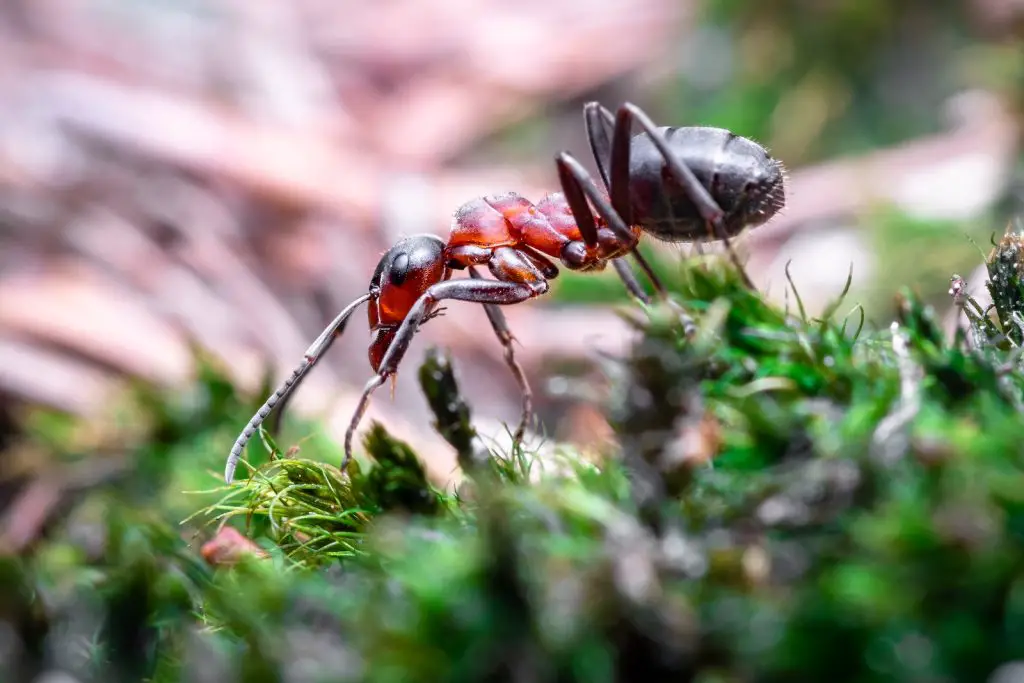
Can ants express emotions?
Ants do not experience complex emotions like love, anger, or empathy, they exhibit basic behaviors in response to stimuli.
For instance, they are attracted to pleasant things and avoid unpleasant ones.
Ants can use their antennae to detect odours and follow pheromone trails to find food and navigate back to their colony.
They also have sensory hairs on their exoskeletons that allow them to sense their surroundings.
However, they may not be able to sense damage on the inside, which makes them vulnerable to parasitic attacks if the parasites can avoid triggering the sensory hairs.
Can ants feel pain
Ants are not capable of experiencing “pain” like humans do. They are sensitive to discomfort and can sense when they are injured.
Unlike humans, ants do not have a brain that can interpret pain signals.
They do, however, have small brains and nerve cords with ganglia that help them process sensory information about their surroundings.
When attacked by predators or stung by insects, some ants can be pricked without experiencing distress.
Scientists believe that ants may sense no more than discomfort from injuries, but they can still react in ways similar to humans if they are hurt severely enough.
Conclusion
Ants may have relatively small brains, but they possess an impressive level of collective intelligence that allows them to work together as a colony.
While they may not experience complex emotions like humans, they do exhibit basic behaviours in response to stimuli and can sense discomfort and injuries.
Their nervous system, although less complex than humans, it allows them to perform essential activities such as communication, foraging, and avoiding predators.
Despite their small size, ants continue to fascinate scientists and serve as an excellent example of the fascinating capabilities of the animal kingdom.

